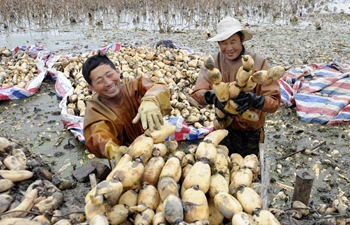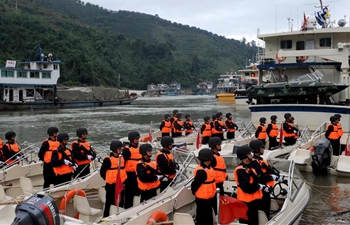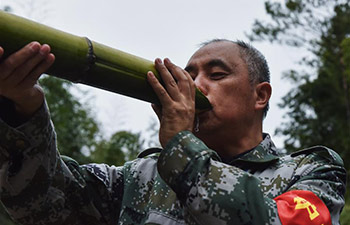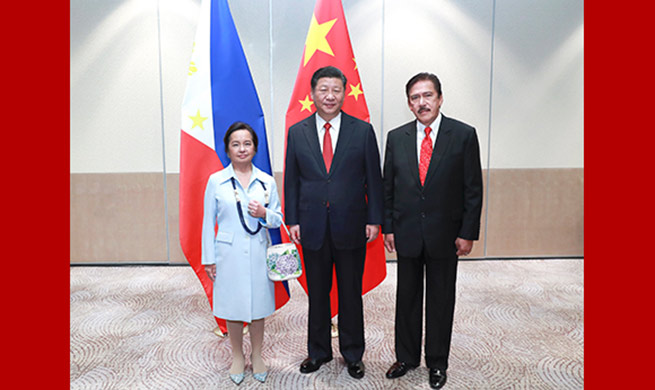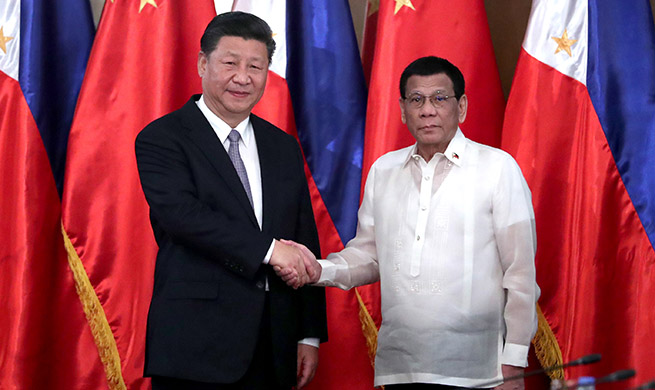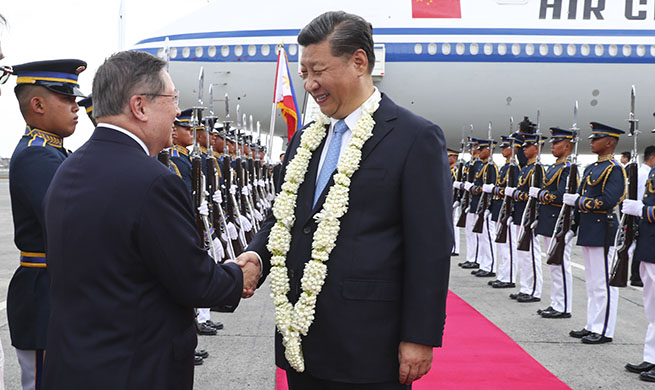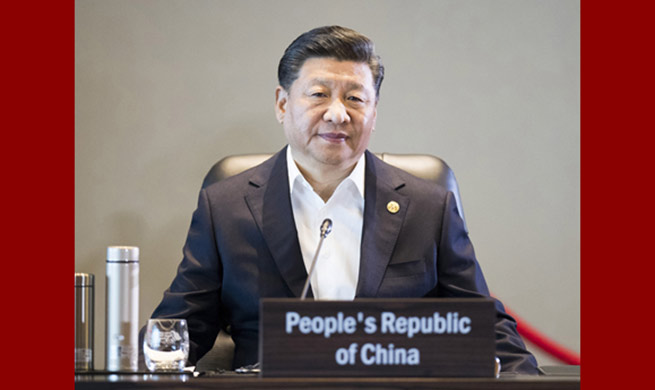NAIROBI, Nov. 21 (Xinhua) -- The United Nations on Wednesday called for international cooperation to combat wildlife crimes and other forms of transnational crimes.
Miwa Panholzer Kato, director of division for operations at United Nations Office on Drugs and Crime (UNODC) told a forum in Nairobi that wildlife crime is a low-risk, high-profit transnational organized crime, which is overwhelming countries and communities, affecting biodiversity and development.
"The truth of the matter is that there is no alternative to international cooperation to tackle organized crime and combat wildlife crimes - there is no single country that will alone, be able to curb the plight that wildlife crimes represent," Kato said during the closing ceremony of the Wildlife Inter-Regional Enforcement (WIRE).
The three-day event was held under the umbrella of the International Consortium for Combating Wildlife Crime (ICCWC).
ICCWC is a consortium composed of United Nations Office on Drugs and Crime (UNODC), Interpol, World Customs Organization, World Bank and the Convention on International Trade in Endangered Species of Wild Fauna and Flora (CITES) that is undertaking the task of fighting the multifaceted nature of wildlife crime.
The conference was the first WIRE meeting to be held in Africa and brought together police, customs, prosecutors and financial investigators from over 20 African and Asian countries with a focus on improving Africa-Asia cooperation on the prosecution of wildlife crime.
Kato said that eliminating the trafficking of endangered species requires the greatest degree of cooperation to deliver on the 2030 sustainable development agenda especially on goals 14 and 15 which are ambitious and require proportionally ambitious responses.
She noted that illicit wildlife trade not only endangers animals but also slows down progress and development in many areas of the 2030 development agenda.
The UN official said that customs officers, financial intelligence units, police, wildlife investigators and prosecutors across the global should establish sustainable linkages among themselves.
She revealed that interagency collaboration at country level is as important as cooperation among countries to reduce the operations of wildlife criminal syndicates.
Margaret Mwakima, principal secretary at Kenya's ministry of tourism and wildlife, called for joint global efforts to preserve the earth's flora and fauna against great odds that are caused almost uniquely by human greed and selfishness, search for financial wealth and status and by a disregard for law.
Mwakima said that dealing with cross-border crime is difficult given that every nation has its own unique legal framework and internal regulations that govern how wildlife crime is tackled.
She noted that practical and workable solutions including financial investigations, identification of risk indicators for transport routes for trafficking of illegal wildlife products as well as cross-border information exchange should help to halt the international trade in the endangered species.
Noordin Haji, director of Kenya's Public Prosecutions, said the world is a global village and that transnational organized crime constitutes a major threat to regional peace, security and rule of law.
Haji said that there should be a paradigm shift from regarding wildlife crimes as a conservation issue to a national, regional and international security threat.
"We must also remain conscious of the link between wildlife trafficking and other transnational organized crimes such as terrorism," he said.
He added that improving Africa-Asia cooperation on the interception, investigation and prosecution of wildlife crimes is critical to combating wildlife trafficking.
